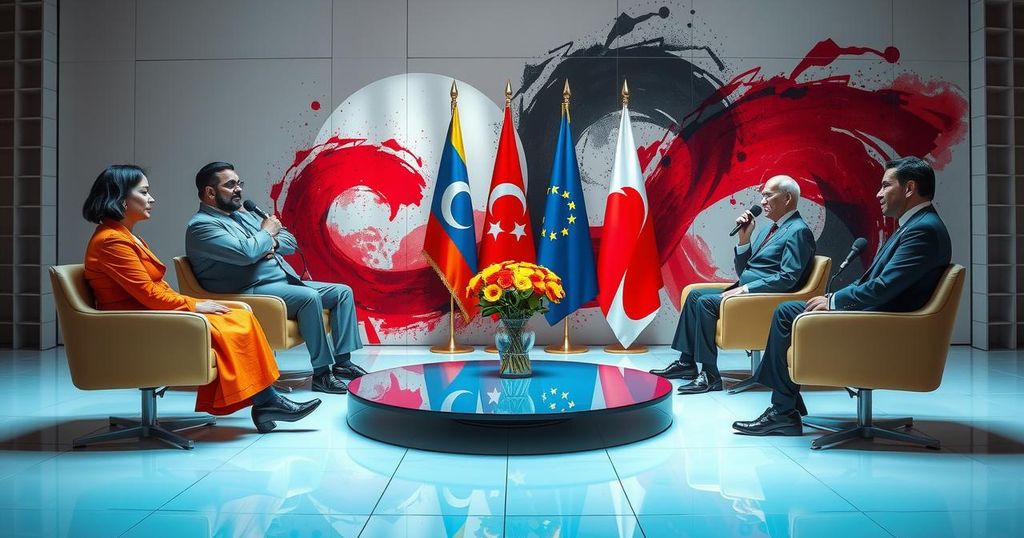The Shift Towards Autocracy: Trump’s Influence on Global Leadership

President Trump has shifted U.S. diplomacy to favor authoritarian leaders, undermining democratic values. His supportive remarks about leaders like Erdogan signal a departure from traditional American ideals, emboldening authoritarian actions globally. Experts assert that Trump’s approach negatively influences global democratic institutions, as leaders adapt their tactics without fear of repercussions from the U.S.
President Trump has significantly altered American diplomacy, choosing to embrace leaders who forsake democratic values. During a recent meeting, Trump praised Turkish President Recep Tayyip Erdogan, disregarding ongoing protests and the arrest of his political opponent. Trump’s administration favors autocratic leaders over traditional democratic support, marking a departure from years of bipartisan efforts to enhance global democratic institutions.
Experts have noted a rise in authoritarian behaviors globally, linking this trend to Trump’s actions, such as opposing political rivals and dismissing the media. Rosa Balfour from the Carnegie Endowment commented that Trump’s influence is felt worldwide, as his lack of condemnation of anti-democratic activities encourages leaders to act without fear of repercussions. Jane Harman further highlighted that leaders like Erdogan have progressively turned away from democratic principles for years, with Trump’s election coinciding with actions reflecting this authoritarian drift.
Notably, Trump is not the first U.S. President to tolerate undemocratic practices for strategic alliances. While Biden engaged with autocratic leaders under similar circumstances, Trump’s presidency has seen an alarming rise in actions that undermine democracy, such as Israeli Prime Minister Benjamin Netanyahu’s recent maneuvers to politicize the judiciary without fear of U.S. intervention.
In Serbia, President Aleksandar Vucic has utilized Trump’s dismantling of foreign aid as a rationalization for cracking down on media and dissent. Following raids on NGOs, Vucic echoed Trump’s sentiments about a liberal establishment resisting his governance. Trump Jr. recently lauded Vucic, framing his actions as practical governance, thereby legitimizing a move away from democratic norms.
Furthermore, after Erdogan’s crackdown on dissent, a U.S. envoy praised the Turkish leader, suggesting that Trump’s conversation with Erdogan led to positive outcomes in Turkey. Scholars argue that Trump’s approach indicates a shift towards accepting autocratic governance, and this sentiment resonates with other leaders who now perceive the U.S. as an ally of authoritarianism, fostering an environment where repressive governance can flourish without adversities.
The article underscores the significant shift in American diplomacy under President Trump, characterized by a preference for authoritarian leaders and a departure from traditional support for democratic values. This shift emboldens autocratic regimes worldwide, allowing them to operate freely without fear of U.S. condemnation or consequences. As global leaders observe and respond to Trump’s stances, the implications for democracy are profound, marking a troubling trend in international governance.
Original Source: www.nytimes.com








